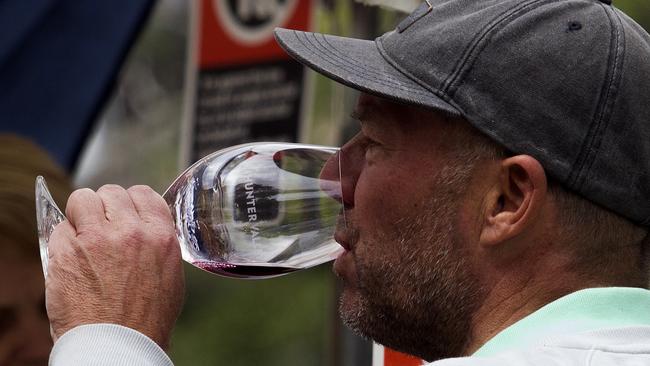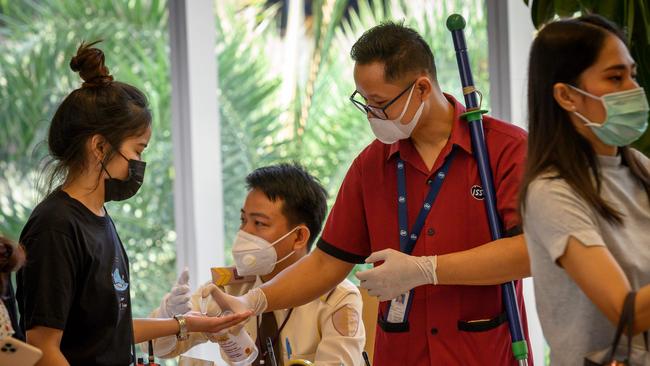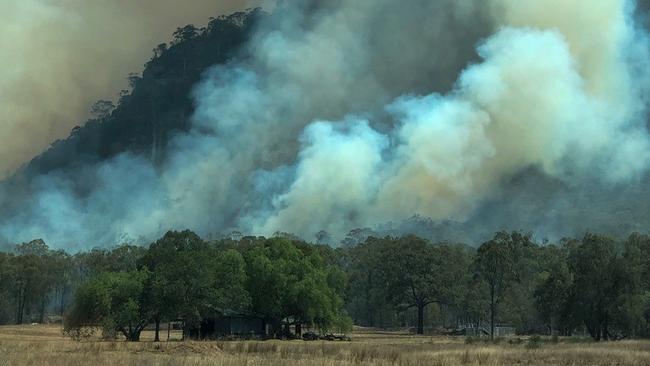Coronavirus to add to multimillion-dollar hit to tourism revenue in Hunter Valley wine industry
Drought... bushfire... smoke taint.... now coronavirus the latest hit to Hunter Valley wine and tourism industry, which has seen a multimillion-dollar decline.

Newcastle
Don't miss out on the headlines from Newcastle. Followed categories will be added to My News.
The Hunter Valley wine and tourism industry can’t catch a break.
First it was drought, which continues to grip the region, then bushfires which threatened crops and sent smoke billowing over the area and now the latest attack, the coronavirus.
The outbreak of the deadly disease, which has claimed more than 120 lives and infected more than 4000 people in China, is causing flow-on effects for the tourism industry in Australia.
Millions of people in China have been locked down as the Chinese Government fights to contain the spread of the virus, which means our Asian visitors aren’t being able to make the trip.

“We do get a lot of international tourism as well as a lot of tourism out of the Asian regions,” President of the Hunter Valley Wine and Tourism Association Christina Tulloch said.
“The main concerns, there are people not being able to travel, not wanting to get on aeroplanes and the uncertainty of the risk.
“There are definitely people who are not travelling and who are cancelling further bookings as a result.
“That has been really hurting us.”
It comes as a survey recently released by the association revealed the Hunter Valley has suffered a staggering $42 million loss in tourism revenue over the last three months.
“It has been showing quite significant decline,” Ms Tulloch said.

“We know the Hunter Valley visitor economy is worth over $500 million dollars a year so we are looking at losses of around $42 million, and for each month we continue to see that decline it’s another $15 million.
“Drought we were already seeing a reduction in crop levels. Smoke taint has become a really big issue because a lot of the fruit has been tainted by the smoke from the bushfires.

“It’s not fit for purpose, we can’t pick it therefore we can’t make it into wine and the government is yet to declare it as eligible bushfire damage.
“As the second biggest tourism destination in NSW outside of Sydney, the issues in the Hunter will be felt at a national level. It’s bad, people are hurting and people are scared and worried.”
Ms Tulloch wants people to know the Hunter Valley is still open for business.
“It’s a compounding effect because people assumed the Hunter Valley was on fire which it never was, we did have fires in close proximity which caused smoke taint, but as an area we were never on fire,” she said.
“The perception that people need to stay away and air quality issues is what’s causing the problem and it’s pretty unprecedented.
“The flow on effect across the value chain is enormous.”

Working with Cessnock and Singleton Councils, the Association is pushing for funding grants to help with the region’s recovery.
“We’re working with them putting submissions into the government to achieve some funding from the $76 million dollars that has been announced,” Ms Tulloch added.
“It really comes down to how quickly we can access funding, put destination marketing campaigns in place to let people know the region is open and come and visit.
“We’ll also continue to push to have smoke taint recognised as a legitimate form of fire damage.”
THE BIG IMPACT
With a number of Hunter Valley wineries impacted by bushfires in some way, decisions are being made to severely reduce 2020 vintages.
Tyrrell’s have not been directly impacted by fire damage, however the continued presence of smoke since late October means many of their vineyards have been affected by smoke taint.
The well-known winery has been working closely with the Australian Wine Research Institute (AWRI), and Dr Ian Porter of La Trobe University, who have been testing vineyards grapes across the region for smoke taint.
They have also been conducting micro ferments in a laboratory, which led to the decision that most of their vineyards will not be harvested for wine production.
Tainted grapes produce unpredictable levels of undesirable characters in wine and can get worse over time.
